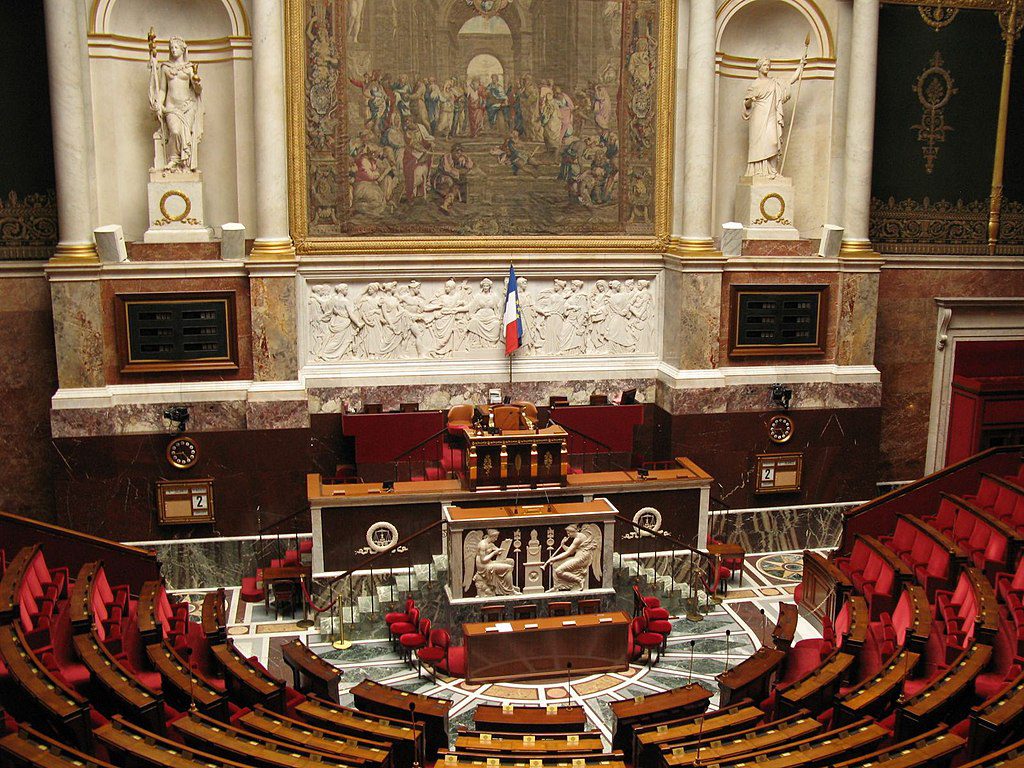
Elisabeth Borne is France’s new prime minister, hand-picked by Emmanuel Macron. Her first general policy speech before the National Assembly at the head of her new government, unveiled on Monday, July 4th, was a highly anticipated moment.
The exercise was delicate insofar as the prime minister presented herself before an Assembly in which she cannot count on a stable majority—a rare phenomenon in French political life since the adoption of the Constitution of the Fifth Republic in 1958.
Elisabeth Borne has therefore chosen to turn this weakness into a strength, by emphasising her willingness to seek compromise, rather than play the traditional opposition between two blocs, one on the Left, the other on the Right, which has structured French political life for decades: “For too long our political life has been made up of two opposing blocs. It is time to enter the era of forces that build together,” she explained.
The roadmap is now clear: the government will not be able to rely on any consensus or any pre-established agreement, but will now have to obtain the support of deputies on a case-by-case basis, bill after bill.
Her speech lasted no less than an hour and a half and allowed her to broadly sweep up an all-encompassing action programme for the weeks and months to come. The vote on the law on pension reform, with the extension of working hours, will be one of the main issues to be addressed. Borne also stressed the need for a nuclear policy in France in a context of energy scarcity due to the war in Ukraine. “Energetic transition involves nuclear,” she reminded us forcefully.
Elisabeth Borne seemed to willingly partake in this delicate exercise, despite the electric atmosphere in the Palais Bourbon. The Left MPs, within the NUPES coalition, made their disapproval loudly known. Since the second round of the legislative elections on 19 June 2022, they have multiplied their provocations and outbursts, with the avowed aim of desecrating the Assembly building. In comparison, the benches occupied by the Right—by the Rassemblement National—remained generally calm and attentive. Marine Le Pen’s party intends to play the card of respectability and to appear in the eyes of public opinion as a responsible party, worthy of exercising parliamentary functions and therefore—sooner or later—of governing.
The priority of Elisabeth Borne’s government is to pass an emergency law on purchasing power, which will be discussed in the coming days. The NUPES deputies did not wish to enter the heart of the debate, but preferred to strike a blow right away, as if to embody the opposition. They therefore tabled a motion to censure the government of Elisabeth Borne, to protest against Borne’s refusal to submit to a vote of confidence from the deputies on Wednesday, July 6th. The motion to censure was proposed at the last minute, just before Elisabeth Borne was due to speak.
The Rassemblement National (RN) refused to join the motion of censure, arguing that the priority was to work on improving the purchasing power of the French. The RN deputies thus castigated the irresponsibility and amateurism of Jean-Luc Mélenchon’s allies—also a way of highlighting their own alternative, “reasonable,” strategy. “We are not here to block and break everything, we are here to propose solutions,” explained Sébastien Chenu, spokesman for the Rassemblement National. This strategy is vilified by the NUPES, which denounces “the objective alliance of the RN and Macron’s land:” an argument that struggles with credibility, coming from a political force that gave a majority of its support to Emmanuel Macron during the presidential election. The now president of the RN group of deputies in the Assembly, Marine Le Pen, did not spare her criticism of Elisabeth Borne, judging that her reappointment after the legislative elections was “an institutional incongruity” and “a political provocation.”
The LR (Les Républicains) deputies did not want to join the motion of censure either: “A motion of censure before having started; it seems to me totally puerile and useless,” said Olivier Marleix, the head of the LR in the Assembly. But neither did Les Républicains wish to accommodate Macronism. Stuck between the NR and the NUPES, their line of conduct will be difficult to hold: with “no compromise, no small arrangements, no blocking,” there is very little space to politically navigate.
After going to the Assembly, Borne went to the Senate for another speech of general policy.
One thing is certain: intensity has returned to French political life since the June elections.
